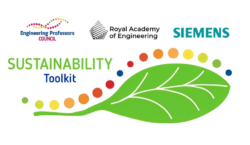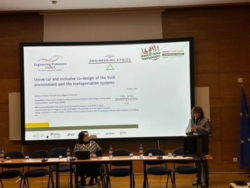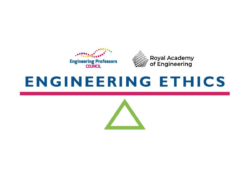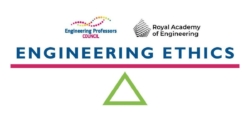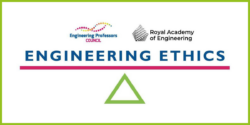We’re excited to announce that we’ve been working hard behind the scenes on our brand-new Inclusive Employability Toolkit, career preparation, and progression into the workplace.
We will be previewing the toolkit at our in-person event, EAN Congress 2025: Realising the vision, next week (Monday 9th June – Wednesday 11th June 2025), followed by the official launch on Wednesday 3rd September 2025, during our live webinar.
What is the Inclusive Employability Toolkit?
The Inclusive Employability Toolkit, formerly known as the EDGE Toolkit, was originally developed in partnership with Canterbury Christ Church University, Wrexham University, and Equal Engineers. Following funding from the Royal Academy of Engineering, the two universities have now collaborated with the Engineering Professors Council to relaunch the resource under its new name. This newly relaunched version has been redesigned and enhanced to improve the toolkit’s usability and ensure wider accessibility for students, educators, and employers alike.
This toolkit is more than a set of activities – it’s a strategic resource for students, graduates, academics, employers, and managers. It provides tools to develop the employability skills needed for graduate-level roles and long-term career progression in STEM fields.
At the heart of the toolkit is a focus on inclusion, diversity, and the power of bringing your authentic voice – especially social minority experiences – into the world of work.
What’s available now?
While we continue to develop some of the toolkit’s additional features, we’re pleased to share that the core activities are ready to use now. These include a range of twelve interactive resources – including a game – labelled Activities A through L, that are ideal for embedding into session planning or curriculum development. Each activity has been thoughtfully designed to deepen your understanding and practical application of Equity, Diversity, and Inclusion (EDI) principles across a range of academic, professional, and social contexts.
These activities are intended to challenge you to think critically, reflect on real-world scenarios, and consider your own experiences, assumptions, and behaviours through an EDI lens. Through engaging with these exercises, you will:
- Explore key EDI themes, such as unconscious bias, inclusive language, accessibility, intersectionality, and allyship
- Apply EDI concepts to realistic situations you may encounter in university life, the workplace, or broader society
- Build self-awareness and gain insight into your own perspectives and responsibilities within diverse communities
- Develop practical strategies for fostering inclusivity and equity in your academic and professional environments.
We have also developed a new addition to the toolkit: a University Career Services Library, where you can find direct links to the career services of 96 EPC affiliated universities. This library serves as a valuable starting point for exploring career development support, including workshops, employment opportunities, internships, mentoring schemes, and other services available through your university.
You can access the available activities and the University Career Services Library here.
Additionally, you can access the Inclusive Employability Toolkit homepage here.
Whether you’re just beginning to explore inclusive employability or looking to enhance your existing practices, these activities provide a strong foundation for understanding and applying EDI (Equality, Diversity, and Inclusion) in your teaching or workplace environment.
What’s coming next?
We’re currently finalising the rest of the toolkit, which includes:
- A practical How-To Guide / Case study to help integrate the activities with ease, and offering real-world examples of how the toolkit has been used by academics and students.
This resource will be published in September, following our official webinar launch.
Join us at the official launch
Date: Wednesday 3rd September 2025 @ 1pm – 2.30pm
Event: Webinar: Introducing the Inclusive Employability Toolkit and Launching the EPC’s DEI Community of Special Interest
At the webinar, you’ll experience a live demonstration of the Inclusive Employability Toolkit. We’ll walk through the toolkit’s design, showcase the new resources, and share insights from students and partners who helped shape it. It’s a great opportunity to learn more and ask questions.
We’ll also introduce the DEI Community of Special Interest – a professional network committed to advancing diversity, equity, and inclusion in teaching, research, institutional systems, and engineering culture. You’ll hear more about its aims, upcoming events, and how to get involved in shaping a more inclusive future in engineering and beyond.
Click here to register for the webinar.
Looking ahead
The Inclusive Employability Toolkit marks the beginning of an exciting journey. Beyond September, we’ll be adding more materials, and creating opportunities for users to contribute, collaborate, and share feedback.
If you’d like to stay informed or get involved, you can register your interest here. We’ll ensure you’re among the first to hear when we begin accepting resources and sharing new opportunities to engage with the toolkit. We’d love to have you on board as we continue working towards a more inclusive and equitable future in engineering and technology.
A shared commitment to inclusion
At its core, this toolkit reflects our shared belief that diversity is not just an asset – it’s essential to innovation and progress. By engaging with the Inclusive Employability Toolkit, you’re not just using a resource – you’re joining a community committed to equity, diversity, and inclusion in engineering and beyond.
We invite you to explore the activities, join our September launch, and be part of the movement. Let’s work together to build a profession – and a future – that values every voice.
Please note: Discussions around discrimination, prejudice and bias are highly complex and part of a much wider national and international debate, including contested histories. As such, we have limited the scope of our resources to educating and supporting students.
The resources that the EPC and its partners are producing in this area will continue to expand and, if you feel there is an issue that is currently underrepresented in our content, we would be delighted to work with you to create more. Please get in touch.
This post is also available here.
 The latest news and updates on the development of the Complex Systems Toolkit.
The latest news and updates on the development of the Complex Systems Toolkit.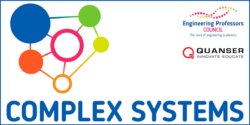 The latest news and updates on the development of the
The latest news and updates on the development of the 